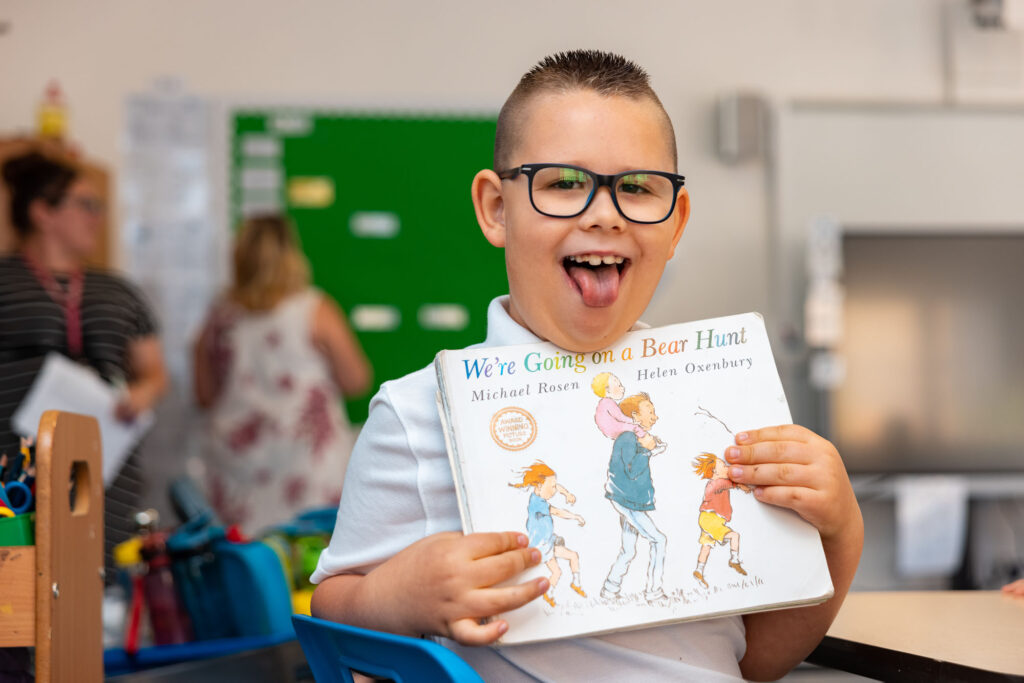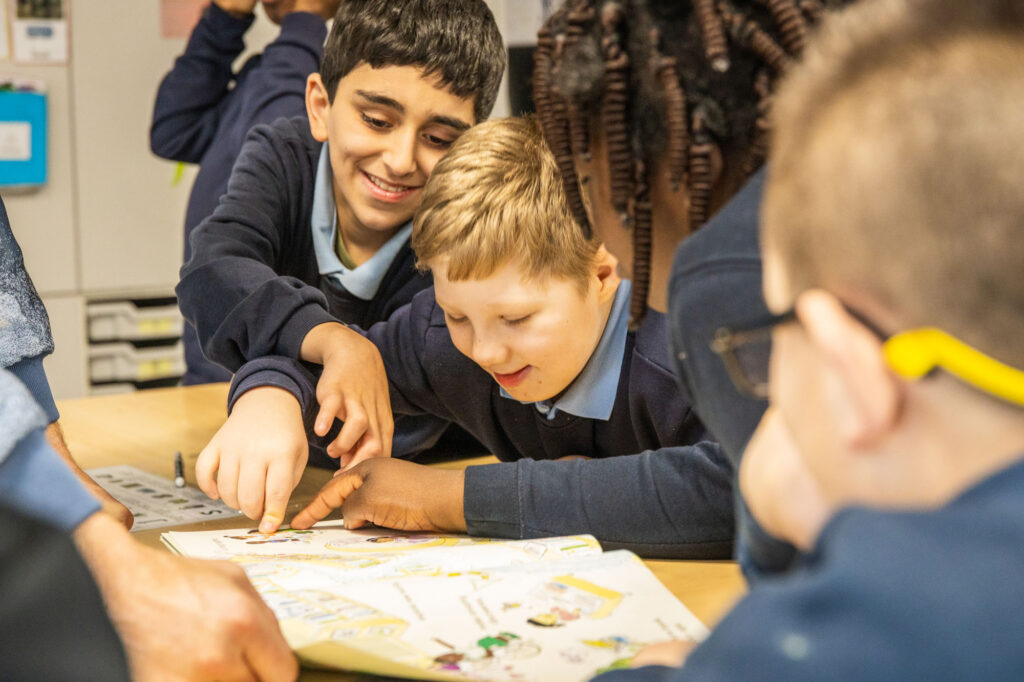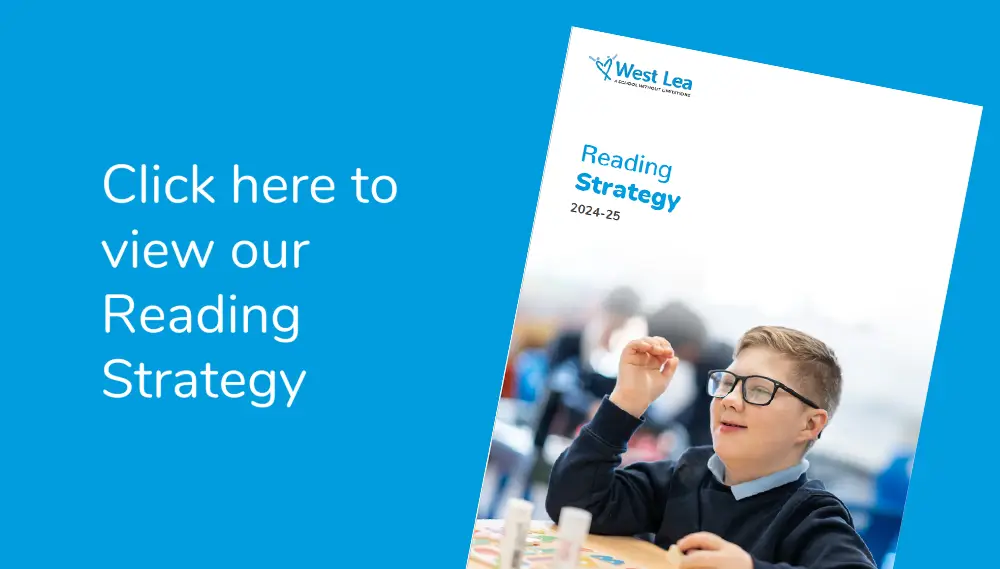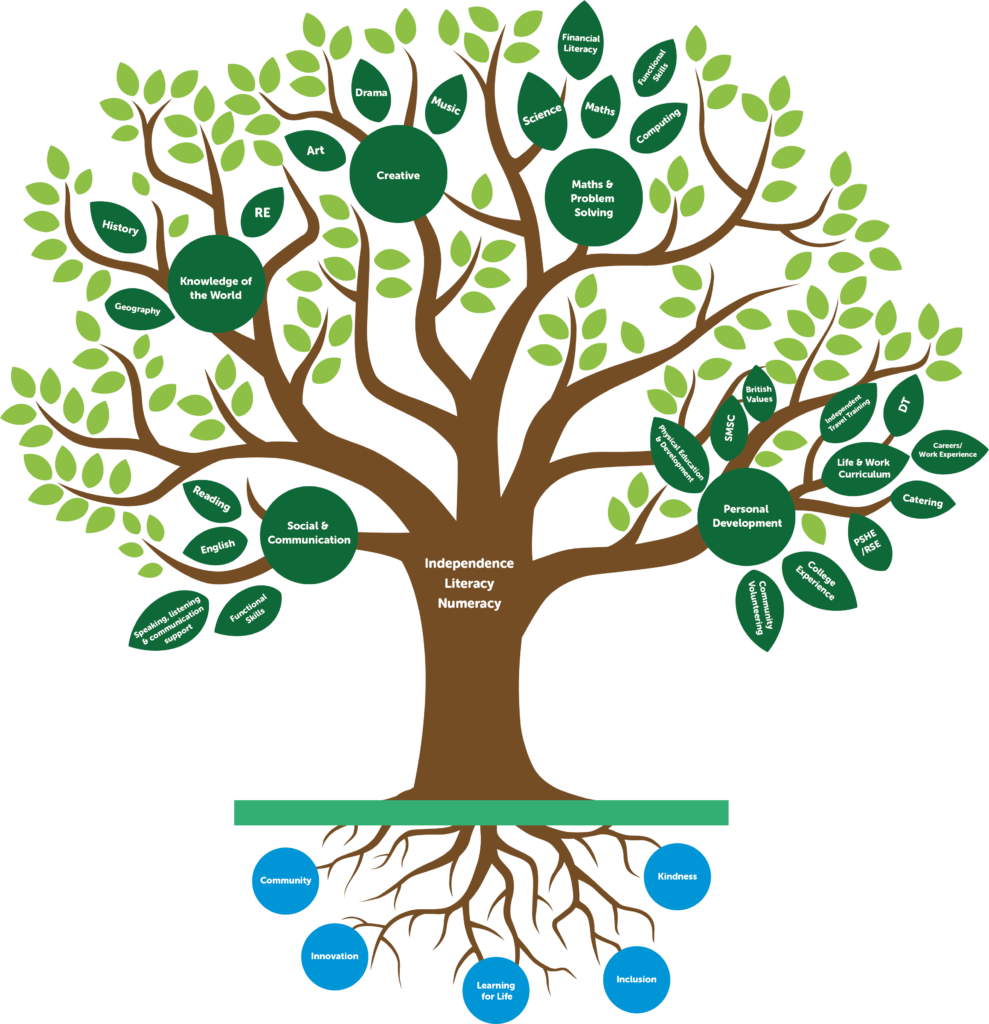Developing a love of reading
“The more you read, the more things you will know.
The more you learn, the more places you’ll go.”
– Dr Seuss

Our reading strategy helps learners to develop a lifelong love of reading and appreciate our rich and diverse literary heritage.
Being able to read confidently and independently is a key skill that helps children make the most of a life that’s full of the written word.
Whilst everyone benefits from being able to read signs, maps and the label on a medicine bottle, reading is much more than a functional skill. It enables learners to develop their thinking, discover new ideas, escape to new places, make new friends, and achieve their potential in all areas of life.
Our curriculum is rooted in our values. Reading brings our five values to life in the following ways:
- Community: learners develop a love of reading and sharing what they’ve read
- Kindness: learners explore different feelings, morals and values through literary texts, and appreciate the golden rule of treating others kindly
- Learning for life: learners discover the importance of being able to read and use their skills in real-life situations
- Innovation: learners are encouraged to write their own stories having first read the work of others
- Inclusion: learners express their ideas and feelings, find their voice, and listen respectfully


We structure our reading curriculum in a planned and sequenced way.
This ensures each learner reaches their potential and becomes a confident reader, building on their knowledge and understanding step by step. Take a look at our reading strategy to find out more.
As they progress through the map, we support learners with a range of approaches and resources, including Little Wandle, Big Cat, and guided reading.
From early years to post 16, we’re committed to creating a reading culture that encourages learners and their families to see reading as an exciting and important activity.
We measure the impact of our reading curriculum by assessing:
- How much learners engage with our books and texts
- How confident they are applying their reading skills in their everyday lives
- How well they do in internal assessments and external qualifications
- How prepared learners are for their next steps into further education and employment
- How much learners love reading – for purpose and pleasure!




